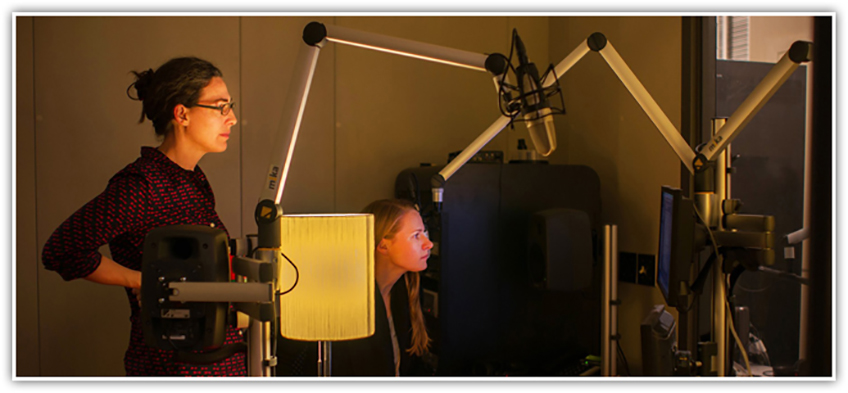
by Aubrey Mellos | Jun 11, 2015 | Blog
“Social learning” is quite the buzzword today, isn’t it? With access to information on literally any topic, and the immediate thoughts and reactions of our friends, family, influencers, and favorite strangers all contained in a device we carry around in our back pocket – it’s a wonder we even need books anymore. (kidding of course, I’m still in the book fan club, (v. e-reader), but that’s for a different piece).
By its name, social learning may seem less important than instructional learning. The word social leads many to think “socialize,” which seems something best saved for Friday happy hour and not business. However, today’s online learning systems and social portals, like Higher Logic’s Connected Communities, are turning this whole notion on its head.
Certainly seeking insight from experts and thought leaders is important, particularly when one is looking to grow his or her knowledge base or understanding around a particular topic. However, in today’s dynamic economy, more and more it’s not what you know or do, but how you do it that can have the most substantial impact on organizational success. And this is an area where social learning can really shine.
For those of us who are not in the cognitive sciences field, it may interest you to know that social learning is a social science theory (and not just an excuse to waste a half-hour on Twitter). Social Learning Theory proposes that learning is a cognitive process that takes place in a social context, it is based upon observation and the information extracted from these observations, in particular, observing behaviors and the consequences of those behaviors.
In the business world, social learning is involved in the development of best practices and new initiatives, innovations or methods. Here, successful plans come to life after looking at what others have done, or are doing, and evaluating the consequences of those schemes – they are rarely, if ever, created in a vacuum. In the world of online learning – which, overall, is mostly populated with instructional learning – adding methods for social learning can add a significant perk for your users by providing a way to embed the facts and figures from instructional learning into the real world.
At CommPartners, we are specifically seeking to meld instructional and social learning through a collaborative with Higher Logic’s Connected Communities. CommPartners’ LMS Platform, Elevate, now allows administrators to create RSS feeds for any products housed within it for display in an association’s Higher Logic platform. This collaboration seeks to facilitate social learning around and about other education pieces by embedding the instructional learning in a place where social learning is already taking place (as opposed to the other way around). In this way, members can engage in social learning and access related e-learning products concurrently. It’s not just discussions, it’s not just expert instruction, it’s both and much more.
Eve Finstein is an Elevate Project Manager with CommPartners. She can be reached at: efinstein@commpartners.com

by Aubrey Mellos | May 7, 2015 | Blog
There was a span of about a month-and-a-half this past winter when I looked forward to long car rides. Multi-hour drives home for Thanksgiving – awesome, traffic jam – yes! Why was I suddenly thrilled by the idea of sitting in my car? Because, like many of you, I was completely addicted to the NPR podcast, Serial.
I feel like I can include the caveat “like many of you” because, during those couple months, it seemed that I couldn’t have a conversation that lasted more than 15 minutes without someone bringing up Serial. Like a good book or movie, we analyzed it, sought commentary on it, and, upon meeting someone who was not yet listening, had our 2 minute elevator pitch as to why it was the best thing ever ready to go.
Done well, podcasts are conversation starters and a way to build a community around an idea. The ability to use voices, music, and other sound effects allows the producer to connect with his/her audience on a more intimate level than a passive article or blog. Incorporating podcasts into your LMS platform offerings adds another level of depth to the ways your community can feel connected and remain engaged.
Provide a “Human Moment”
A podcast can serve as a complement to a larger event or course offered to your community. More and more, businesses are employing podcasts as a strategy to engage this customer base in a non-salesy way by telling human interest stories or providing expert tips on topics tangential to their product. This type of “human moment,” is designed to draw the audience in and build loyalty as they feel they are getting a glimpse behind the curtain.
Tell a Story
The most effective podcasts tell a story or seek to provide advice on a particular topic, and they don’t have to be long to have an impact. A quick 5-10 minute clip is the perfect amount of time for a quick story or a list of 3 best practices around a particular topic. The important part is that listeners leave recognizing they just received new insights or information. In our fast-paced lives, a 10 minute audio clip can sometimes deliver a lot more bang than a 1,000 word article.
Build a Community
As noted above, in addition to helping to build organizational and product loyalty, podcasts also help to build a community. Because podcasts are designed to be intriguing and current, they intrinsically spark conversation. Popular podcast series like Serial became popular nearly entirely by word-of-mouth. It seems to be part of the human experience that when we find value or appreciation in something, we seek to share it with others – in the same way that we also recommend movies, books, and restaurants.
So the next time you’re seeking to build momentum and conversation around a new training series or conference, consider incorporating a podcast as a great way to create enthusiasm for your product.
Eve is an Elevate project manager with CommPartners. If you’d like more information about this topic or Elevate, our learning management system you can reach Eve at efinstein@commpartners.com.

by Aubrey Mellos | Apr 27, 2015 | Blog
You and your team have worked for months developing your Learning Management System (LMS). You’ve ensured a smooth integration with your member database, designed the site’s style and branding, migrated content, fined tuned the site’s look and feel, added your payment gateway and are finally sitting in front of a finished product. Time to pop the champagne? Hold onto those corks for one more second.
Before an LMS platform goes live, there’s one final step, and this one’s a critical one: testing. Testing is so important because it is a way to identify and correct two major hiccups before the site goes live:
- Bugs or mistakes
- Disapproval from your board or member community
Locating and correcting any bugs or mistakes in the site is important because, even though your LMS producer likely went through exhaustive quality control testing of your platform before delivery of the product to you, you are better equipped to recognize some errors they may not catch. Particularly in the area of the user experience , you know your members better than anyone, and know what they’re used to and what may seem foreign or confusing to them. As Learning Solutions Magazine explains,
You are…testing to make sure your configuration, courses, and data are available in the system as you [and your members] expect them to be.
The second roadblock that LMS testing helps to identify is any pushback you may receive from your board and/or members. This is, in essence, a political move – having your board or a sample of your members use the site and provide feedback not only helps you catch any mistakes, but also provides these groups the opportunity to be heard. In this way, you are able to raise any user concerns with your vendor before the site goes live, and avoid having to scramble to make alterations in the first month after launch in the face of unhappy constituents.
CommPartners’ client, the American Health Lawyers Association (AHLA), is currently nearing the end of a two month testing process of its new Elevate LMS with its board members. For AHLA, this testing process ensured that its board had an opportunity to sign off on the site before it goes live, rather than coming to AHLA staff with complaints and/or modifications after the fact. Fortunately, AHLA reports its board members are pleased with the product, “by and large, our leaders were all very happy with it, recognizing that it is a much better system and very intuitive,” said AHLA’s Senior Manager with Practice Groups Distance Learning, K.J. Forest. However, this process has allowed AHLA to identify some fine-tuning needs that it was able to work collaboratively with CommPartners to correct. Ultimately, AHLA will be able to launch a site that matches one of its primary goals in seeking a new LMS – confidence, as K.J. said “we wanted to be able to offer [these benefits to our members] with more confidence,” than they had previously.
If you have thoughts or questions about the content of this blog, please contact Eve at efinstein@commpartners.com.




